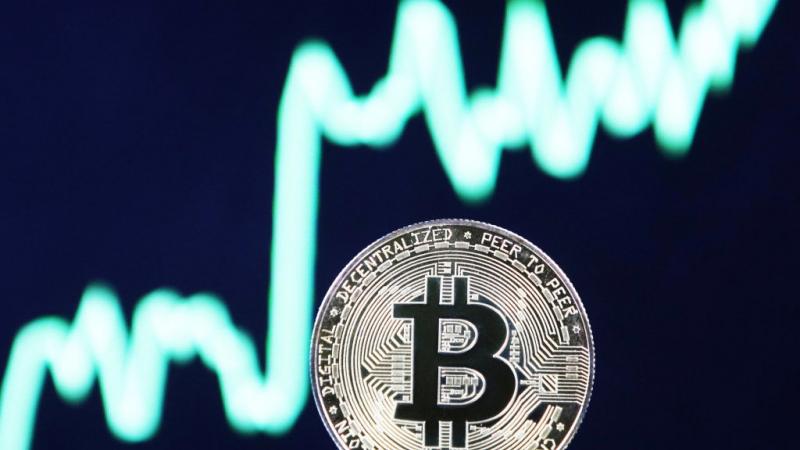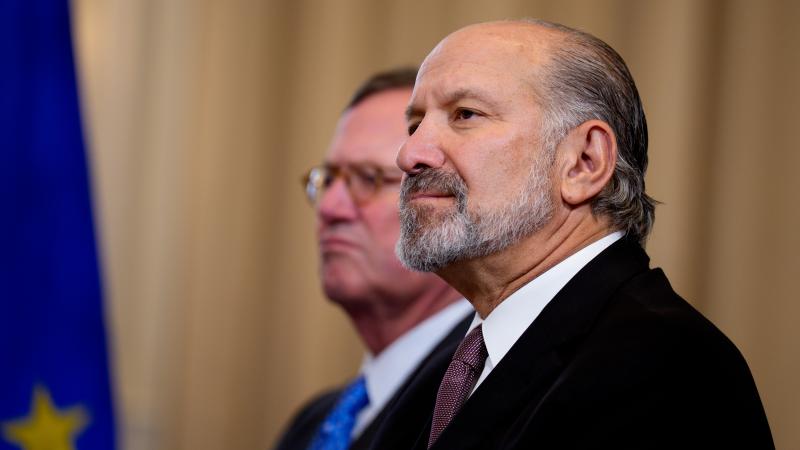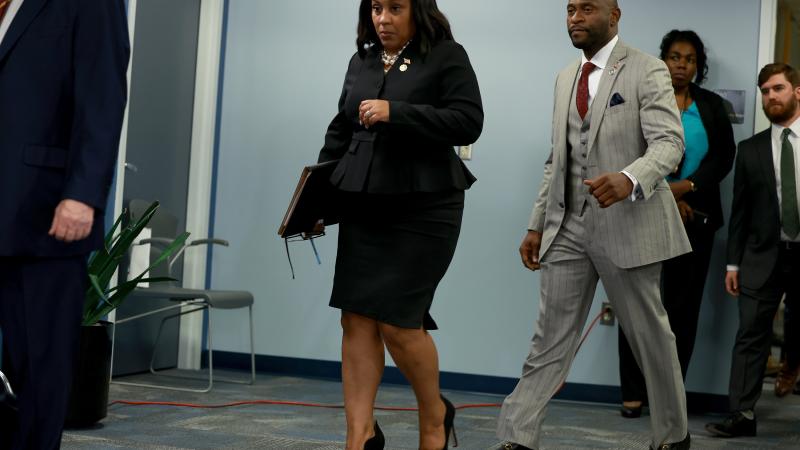Rep. Thomas Massie: U.S. creditors may soon stop loaning money to the federal government
The $1.9 trillion COVID-19 relief bill will bring the U.S. national debt to $30 trillion, Massie said.
Rep. Thomas Massie (R-Ky.) is warning the United States may soon face severe consequences as a result of its astronomical national debt.
Massie explained to the John Solomon Reports podcast that as the U.S. national debt nears $30 trillion with the current $1.9 trillion COVID-19 relief bill, the government's interest rate will rise and creditors may soon stop lending it money.
"I was that guy on March 27 that CNN called 'the most hated man in Washington, D.C.,' because I have the gall to stand up and say if you're going to spend $2 trillion, you need to show up and vote on it. And I had everybody's ire that day, but - and I predicted that this would get out of hand, this would become a regular occurrence, and we'd be spending a trillion or $2 trillion at a clip. You're right, we're at 28 trillion. I've got a debt clock here in my office. And this is the bill that could put us up to $30 trillion, which was a prediction that I made back this summer," Massie said.
"So this bill is gonna push us to $30 trillion. I mean, that's insane. To think about that - seven trillion spending, seven trillion in debt in one year, and typically those numbers are one trillion of deficit and one trillion of spending."
Massie continued, "I mean, let's say we've got $28 trillion in debt, and we've got a 28 trillion-dollar GDP. Here's another - if your interest rate goes to four percent, well, four percent of 28 trillion, that's how much of your GDP is being wasted. And when - and what I tell people is, not just four percent of all labor, but four percent of the robots' labor in this country is wasted, right? Four percent of the 3-D printers, an effort is wasted on the interest on the debt."
The congressman detailed the consequences of such a high national debt.
"I feel like we're kind of almost headed where Puerto Rico got to. You know, Puerto Rico - the only thing that stopped them from spending more money was when their creditors quit lending it to them. And that's, you know, typically, if you're in debt or about to go bankrupt, you don't come to that realization until people quit loaning you money," Massie said.
"The first thing they do is they raise your interest rates because your risk - the risk of getting paid back goes up. And so the interest rates are going to go up, and I think we'll still keep spending money. There'll be nothing to regulate it here, people just borrow money to pay for the interest. But at some point, you become such a risk that you're, you know, the people who are financing you refuse to loan you any more money."
Massie added that in the eight years he has been in Congress, "I haven't seen the fiscal restraint that's necessary to stop us from hitting that final bumper, which is when your creditors say, 'That's it, we're not serving you anymore.'"
He continued by explaining how congressional budget bills worked in the beginning of his tenure.
"When I first got here, there was something called Simpson-Bowles, if you remember that. It was a deal, where they said, 'Okay, we're going to increase your taxes by, you know, that'll be like, one-fourth of it, and three-fourths will be cuts. So we'll cut some spending, and it will increase the taxes.' And honestly, that seems very reasonable compared to what happens now," Massie said.
"Now, when John Boehner and Paul Ryan were in power, we produced Republican budgets. Oh, they balanced, John. But, you had to look at a 10-year window, right? So the budgets were 10 years, and if you looked at the first two years, they spent more money, not less. And it was in the third year where they started to cut spending. Now, why is the third year significant? Because every congressman is, you know, can win reelection before the third year rolls around. And then you do another budget with a 10-year horizon that spends more money than it saves in the first two years."
Massie discussed a strategy to balance the budget and end the annual multi-trillion dollar deficits.
"So what needs to happen? You know, hopefully, we get back into the majority. But that's a necessary but not sufficient condition for balancing the budget. And once we get in the majority, we've got to have the fiscal restraint. I'll be honest with you - and you know, to his credit, or in his defense, Trump never promised to balance the budget or cut spending. He didn't. And so, there was - he had to, he came in with no constraints, and, you know, if the President is going to spend the money well, I guess, you know, a lot of the Republicans in Congress will vote for - to spend the money," Massie said.
"But we're going to need a leader, whether that's a Speaker of the House, or Senate Majority Leader, or a president, Republican president - of course, we'd have to wait four years for that - who gets everybody sobered up, and says we're gonna have to cut spending, or at least go back to the ridiculous spending we had, which was trillion-dollar deficits per year. Six and seven trillion dollar deficits? It's the doubling rate of our debt, is one thing that bothers me."
















